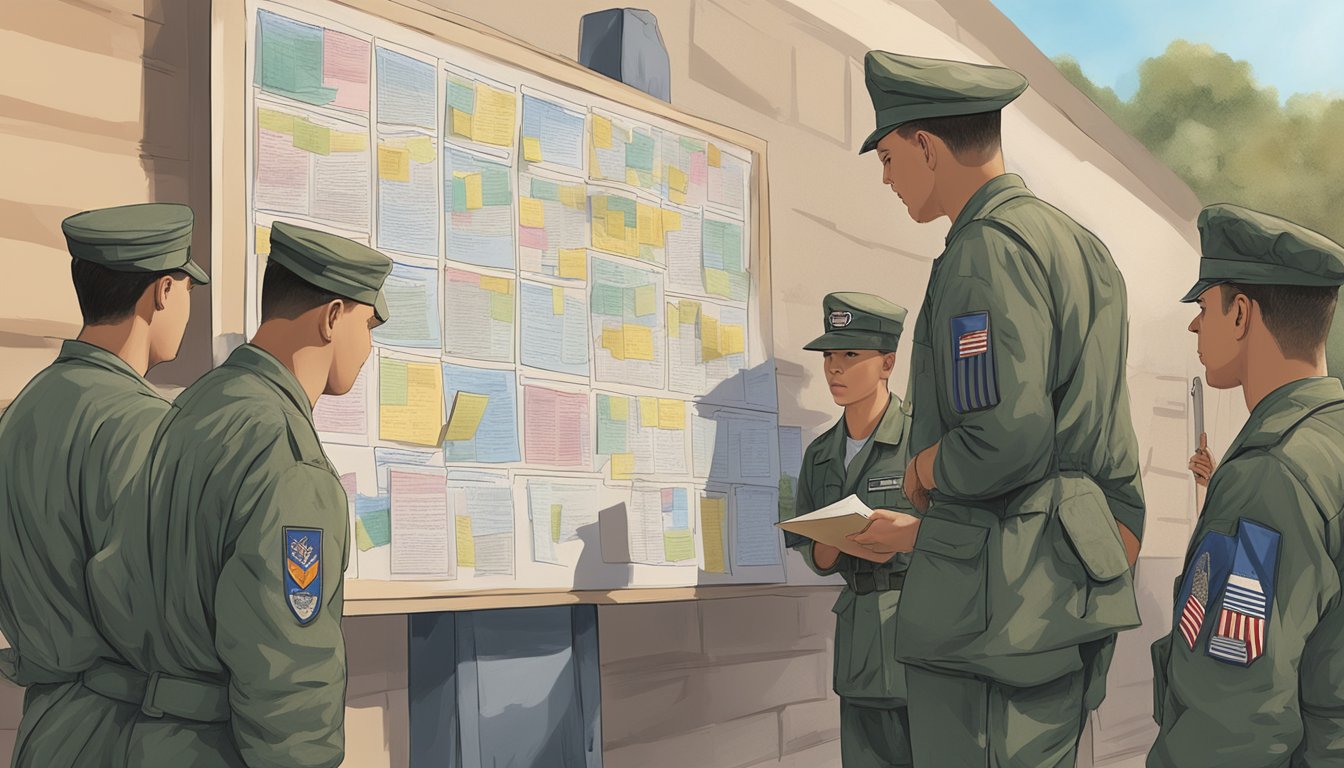Active duty airmen are voicing their concerns over the recent cancellation of significant events and the dismantling of crucial groups within the Air Force.
Many express disappointment about the new focus on scaling back diversity initiatives, which they feel undermines years of dedicated efforts aimed at ensuring the safety and well-being of service members and their families.
Affected Events and Groups
A notable example of this trend is the cancellation of the Family Readiness Summit, initially planned for February 20 at Joint Base Langley-Eustis.
Documented communications reveal that this summit, which was to be sponsored by the Air & Space Forces Association—a nonprofit dependent on member donations—was cancelled.
The event had previously provided a platform for vital discussions on issues such as addiction prevention, ultimately leading to the introduction of Narcan sales at base exchanges as a measure against opioid overdoses.
In addition to the summit, a group specifically focused on tackling employment challenges for women in the Air Force has also been dissolved.
This group had a proven track record of advocating for essential changes to flight gear and policies affecting female pilots throughout the service.
Impact on Volunteer Initiatives
Multiple officers shared with Task & Purpose that volunteer initiatives aimed at supporting military families, assisting in the transition of service members post-deployment, enhancing recruitment strategies, and promoting airman safety have all been put on hold.
This shift appears to align with new Pentagon directives seeking to eliminate Diversity, Equity, and Inclusion (DEI) programs.
One officer expressed skepticism about the Air Force’s motto, “People first, mission always,” arguing that current measures contradict this ethos and fail to reflect the service’s core values.
They worry about the negative impacts on unit cohesion.
Other officers also conveyed their dissatisfaction with a lack of clear communication from leadership regarding the implementation of the new DEI policies, leaving them feeling uncertain about how to navigate these changes for the personnel they supervise.
Leadership and Progress Dissolved
The decision to cancel the Family Readiness Summit at Joint Base Langley-Eustis was linked to its ties with the now-disbanded Sword Athena volunteer group.
This organization had played a key role in providing resources related to employment, mental health, education, and housing for military families.
Participation from national organizations like the Wounded Warrior Project and the USO had been anticipated for the summit’s 2025 event.
Air Combat Command officials cited the association with Sword Athena as the impetus for the summit’s cancellation.
When inquiries arose about the closure of these volunteer groups, Air Force officials pointed to a memo disbanding the Barrier Analysis Working groups, which followed an executive order from former President Donald Trump focused on curtailing DEI initiatives.
Members of Sword Athena asserted that their work was driven by fiscal responsibility and emphasized that they operated on a purely voluntary basis, without relying on public funds.
Officers lamented that the progress made through their volunteer efforts was dismissed as mere bureaucratic excess.
They feel that the critical leadership qualities and the commitment required to launch these initiatives often go unrecognized and undervalued.
Prior to the disbandment, one ongoing initiative aimed to create streamlined connections for airmen seeking financial aid, mental health support, and family reintegration assistance after deployment.
Such programs were deemed vital in nurturing a sense of community, especially for service members who may lack immediate family or strong ties within their units.
The Women’s Initiative Team (WIT), which had been active since 2008 well before the establishment of DEI programs, has also faced dissolution.
The team’s former lead highlighted its success in advocating for workplace improvements, including appropriate bladder relief options for female pilots and changes to hair regulations to support operational readiness and morale.
Additionally, WIT addressed staffing challenges, such as the pilot shortage faced by the Air Force, working to update outdated anthropometric standards based on data from the 1960s that primarily represented white male pilots, thereby broadening eligibility criteria.
One mid-career officer reflected on the real challenges and personal sacrifices that accompanied each initiative launched by these volunteer efforts.
Many individuals chose to remain engaged, striving to enhance the Air Force rather than stepping back and leaving the challenges for someone else to tackle.
Source: Taskandpurpose

